Major tribes in Nigeria and their states of origin: detailed 2024 update
Nigeria is a linguistically diverse country. English is the official language, and the people speak over 500 ethnic languages. People in rural areas use English less frequently, especially those with lower education levels. Find out how many tribes are in Nigeria and the major communities that greatly influence the country's culture, economic development, and politics.
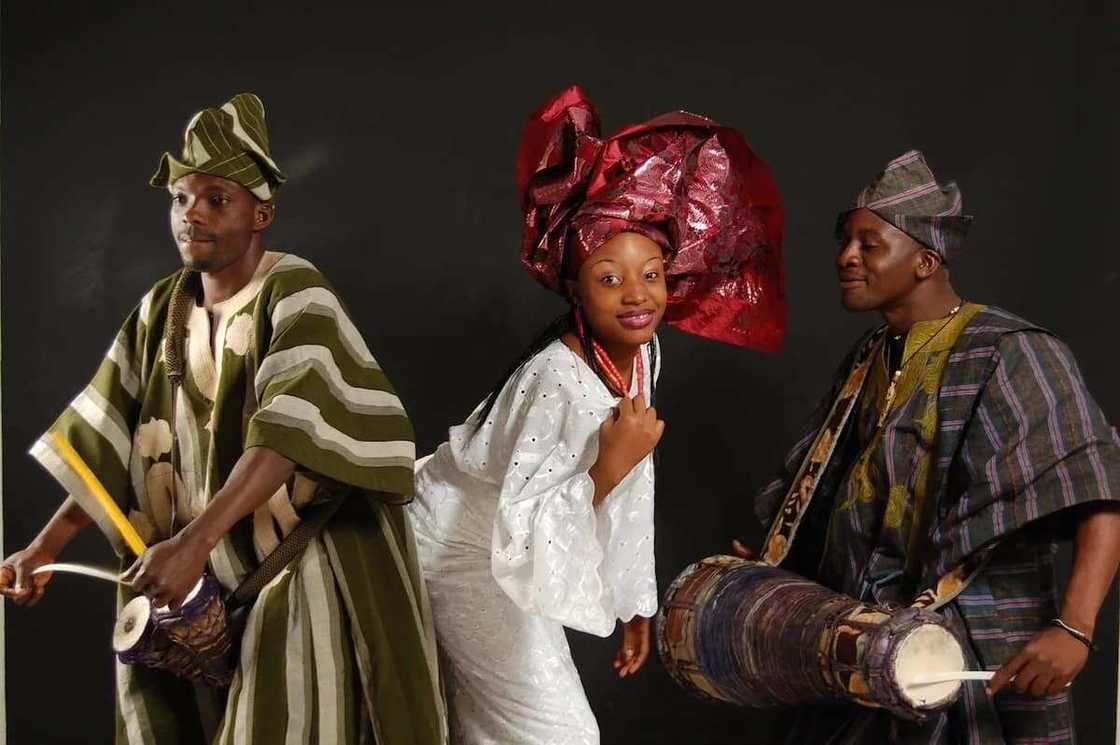
Source: UGC
TABLE OF CONTENTS
- How many tribes are in Nigeria?
- Tribes in Nigeria and their states
- How many tribes are there in Nigeria?
- What tribes are in Nigeria?
- What are the three major tribes in Nigeria?
- What are the largest tribes in Nigeria?
- What are the top 10 oldest tribes in Nigeria?
- Which tribe was the first to emerge in Nigeria?
- Which tribe has the highest population in Nigeria?
- Which is the richest tribe in Africa?
- What is the largest single tribe in Africa?
Nigeria is rich in culture and history. The county holds the largest population in Africa, with over 224.2 million people in 2024. Tribes in Nigeria prove to be unique through different traditions, expressions, and lifestyles.
How many tribes are in Nigeria?
Nigeria has 371 tribes, with Hausa and Yoruba being the two largest groups. On top of these two most populous tribes in Nigeria, hence they have the most influence on the country's political and economic developments.
The top 10 major tribes in Nigeria and their states
The diversity of tribes in Nigeria gives the country a unique identity and makes it a melting pot of different beliefs and traditions. Below are the top 10 most populated tribes in Nigeria, the states they occupy, and other details.
1. Hausa
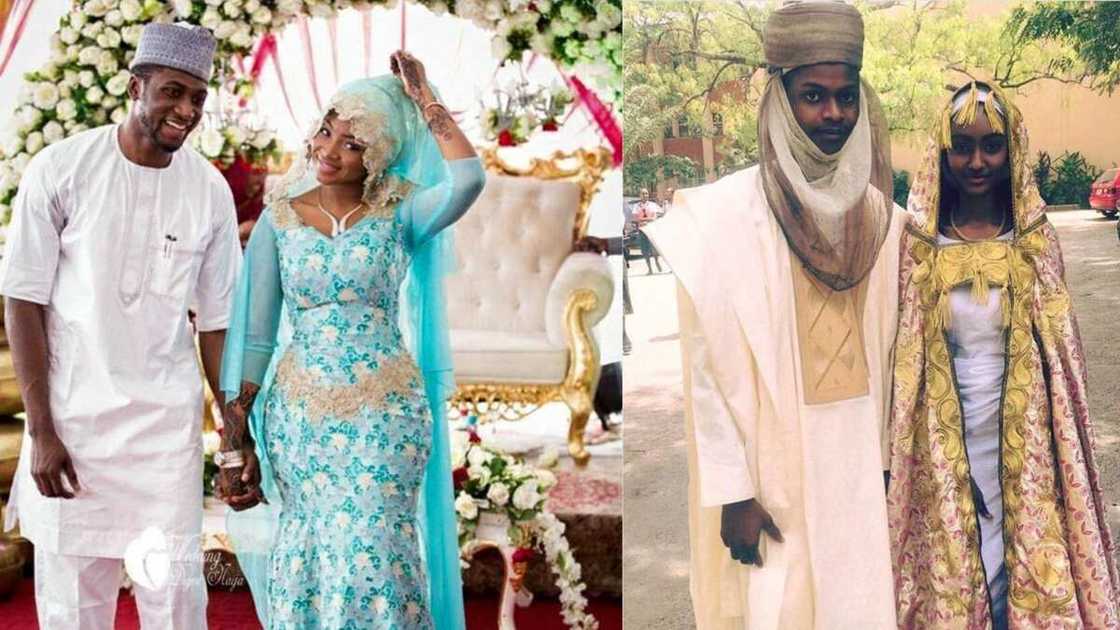
Source: UGC
Hausa is the biggest tribe in Nigeria, with a population of about 65 million people. They make up around 29% of the country's population. Hausa people have a homogenized culture and are known for raising cattle, growing crops and trading.
Islam is the main religion of the Hausa tribe, and they live in Bauchi, Jigawa, Kaduna, Kano, Katsina, Kebbi, Sokoto, Taraba, Gombe, Plateau, Yobe, and Zamfara states of Nigeria. The tribe plays a significant role in the country's politics.
Most of them live in small villages. The Hausa language is a Chadic group language of the Afro-Asiatic type. The main city of Hausa is Daura in Katsina State. They consider this town as their tribe's spiritual center.
2. Yoruba
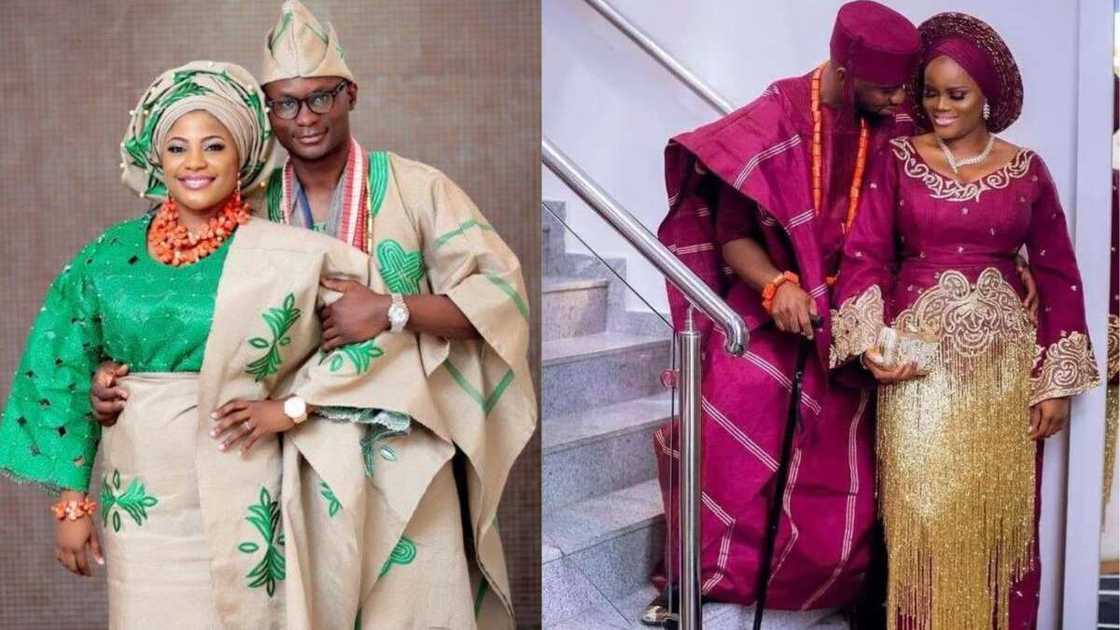
Source: UGC
Yorubas make up around 21% of Nigeria's population. They are the second most influential tribe in Nigeria. Christianity and Islam are the dominant religions among the Yorubas.
A few still practice their ancestors' religion. The tribe has a unique tonal language and preserves most of its traditions and art. Yoruba people live in the Ekiti, Kogi, Kwara, Lagos, Ogun, Ondo, Osun, and the Oyo states of Nigeria.
Yoruba is historically known as Africa's most urbanized tribe. They lived in fortress cities for centuries. Ibadan (one of the main Yoruba cities) was one of the biggest cities in Sub-Saharan Africa. Lagos is considered the main Yoruba city, and Ile Ife city is the tribe's spiritual centre.
3. Igbo
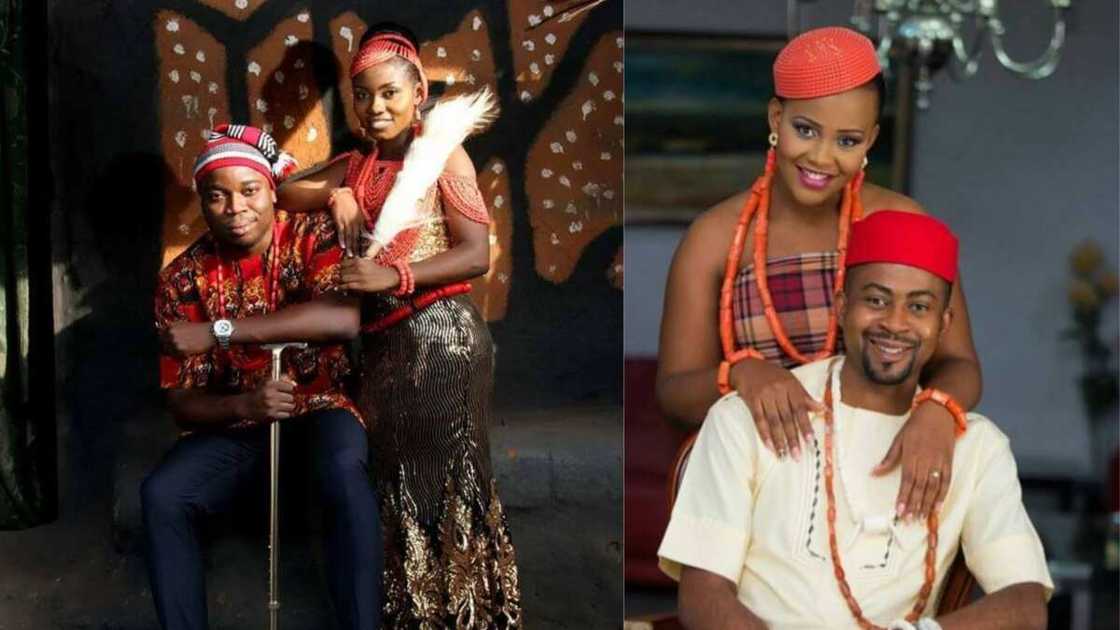
Source: UGC
Igbo is the biggest ethnic group in eastern Nigeria. They occupy Abia, Anambra, Delta, Ebonyi, Enugu, Imo, and the Rivers states. The Igbo tribe speaks several regional dialects and are farmers, craftsmen, and traders. Igbos' main religion is Christianity, and they have beautiful visual arts, dance styles, music, and attires.
The Igbo area is an integral part of oil trade in southeastern Nigeria. The 1967 war between the Nigerian government and Biafra happened in this region. The war frustrated the region's economy. Today, eastern Nigeria has a stable economy, and it attracts many business people, including billionaires.
4. Fulani (Fulbe)
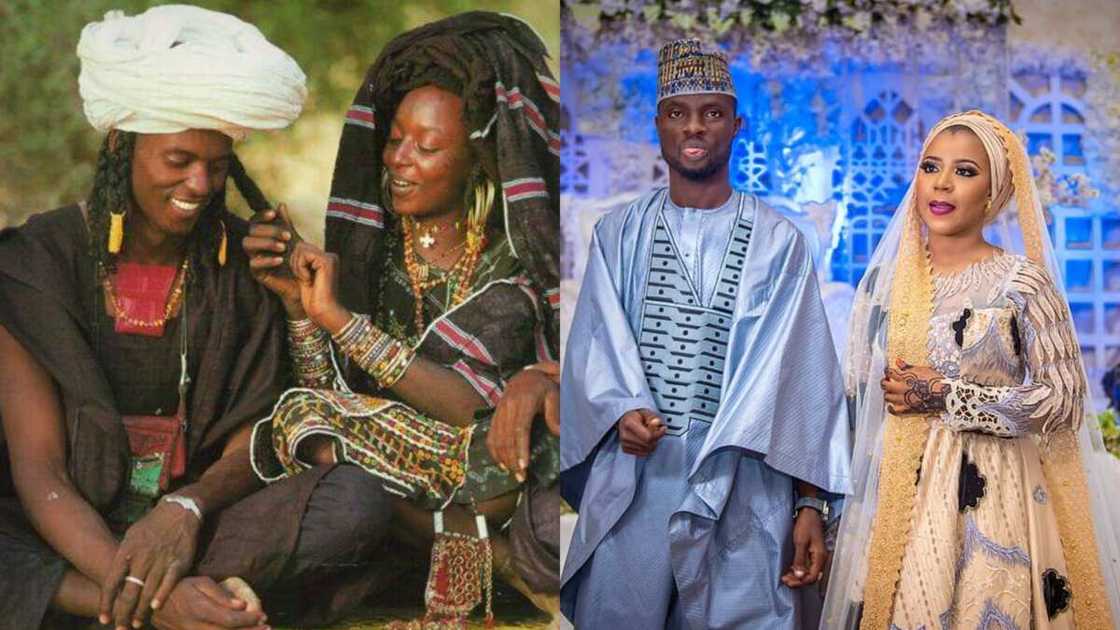
Source: UGC
Fulani and Hausa are intertwined because of intermarriages. The two tribes have a tremendous political influence in Nigeria. The Fulbe people adopted Islam as their primary religion. The main occupation of this semi-sedentary tribe is cattle rearing.
Fulani people are in northeastern Nigeria. They live in Adamawa, Bauchi, Borno, Gombe, Jigawa, Kaduna, Kano, Katsina, Kebbi, Kwara, Niger, Plateau, Sokoto, Taraba, Yobe, and Zamfara states.
5. Ibibio
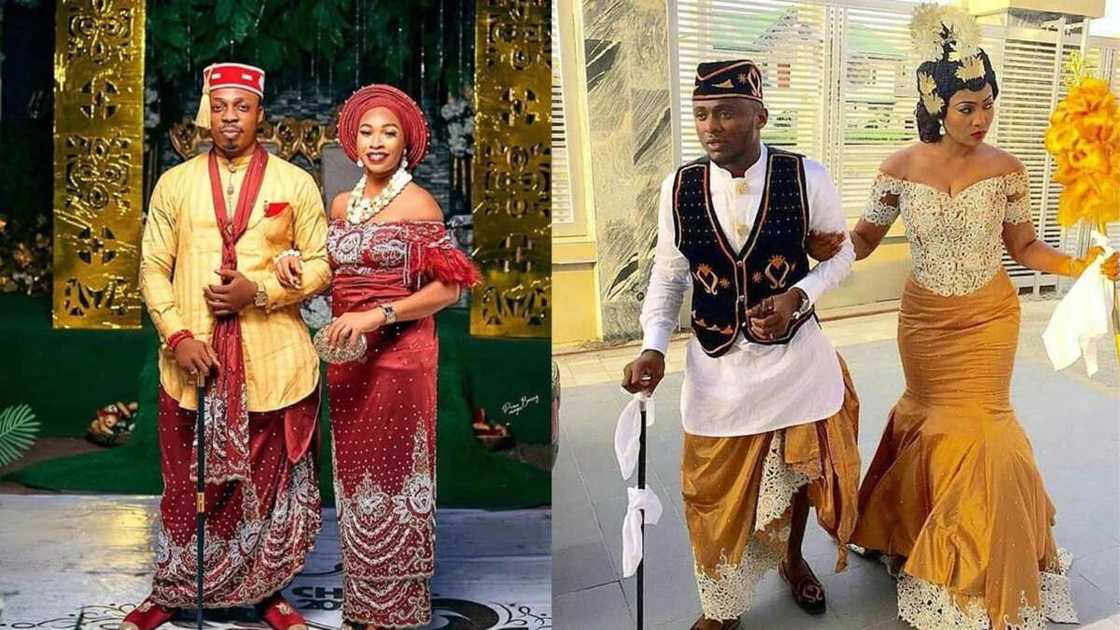
Source: UGC
Ibibio is a coastal tribe residing in southern Nigeria. They are related to the Efik people and share names and cultures with Annang, Efik, Ekid, Oron and Ibeno tribes. These communities also speak closely related dialects.
The Ibibios are in Akwa Ibom State. They share the state's government with the Anaangs, Eket and Oron but have massive control over Akwa Ibom's politics.
Most of the Ibibio people are Christians, and traditionalists worship the God of Heaven (Abasi Enyong), God of the Earth (Abasi Isong) and the Supreme Being (Abasi Ibom).
6. Kanuri
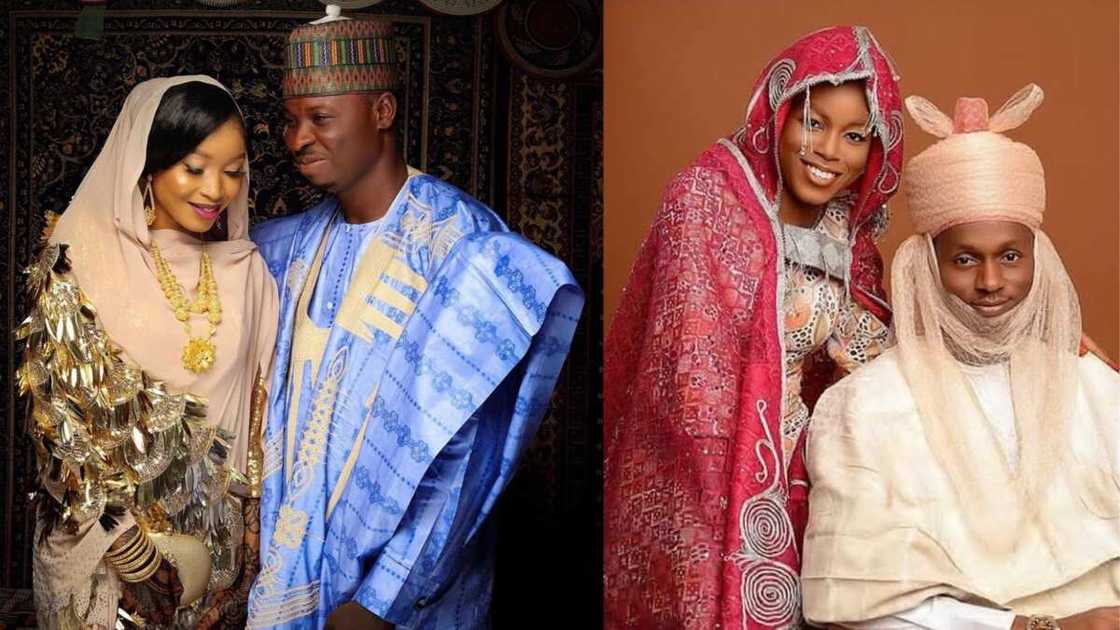
Source: UGC
The Kanuri people are in Nigeria, Chad, Sudan, Libya and Cameroon. They originate from the medieval Kanem-Bornu Empire and engage in farming, fishing, and trading. Islam is their main religion. The Kanuri tribe of Nigeria are predominantly in Adamawa, Borno, Taraba, and the Yobe states.
7. Tiv
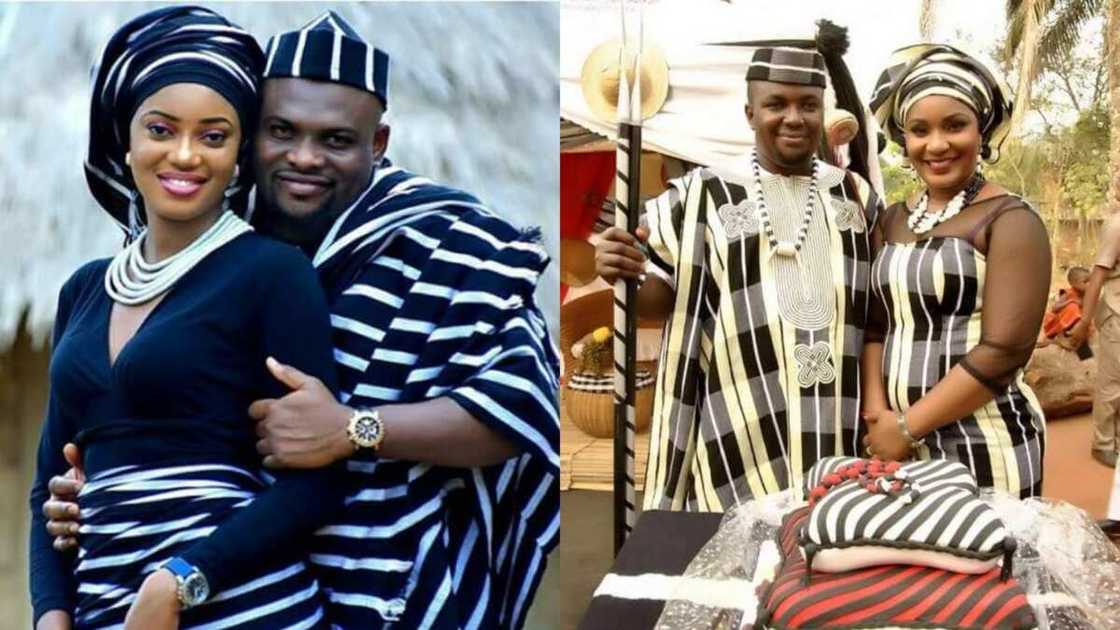
Source: UGC
The Tivoid ethnic group has over 5 million people living in Nigeria and Cameroon. Some of their traditional musical instruments are Kakaki, Ilyu, Adiguve, and Kolugh Ku Bua. The Tiv had no administrative divisions. Leadership was based on age, influence, and affluence.
Most Tiiv language speakers in Nigeria live in Benue State, Abuja FCT, Nasarawa, Niger, Plateau, and the Taraba states. Many members of the Tiv group are also in the United States and the United Kingdom.
8. Ijaw (Izon or Izon Otu)
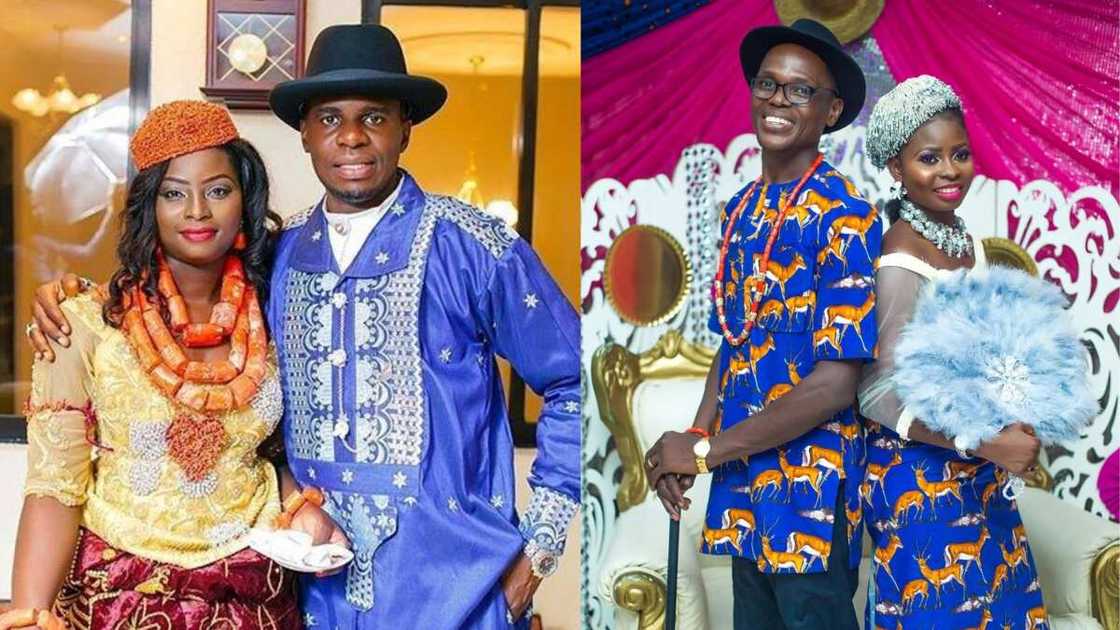
Source: UGC
The Ijaw tribe constitutes 10% of the Nigerian population. They live in the delta of the Niger River, which is extremely rich in oil and gas. The tribe is divided into 50 kinship clans, and most of them are fishermen and farmers. Additionally, the Ijaw people are primarily Christians.
9. Nupe
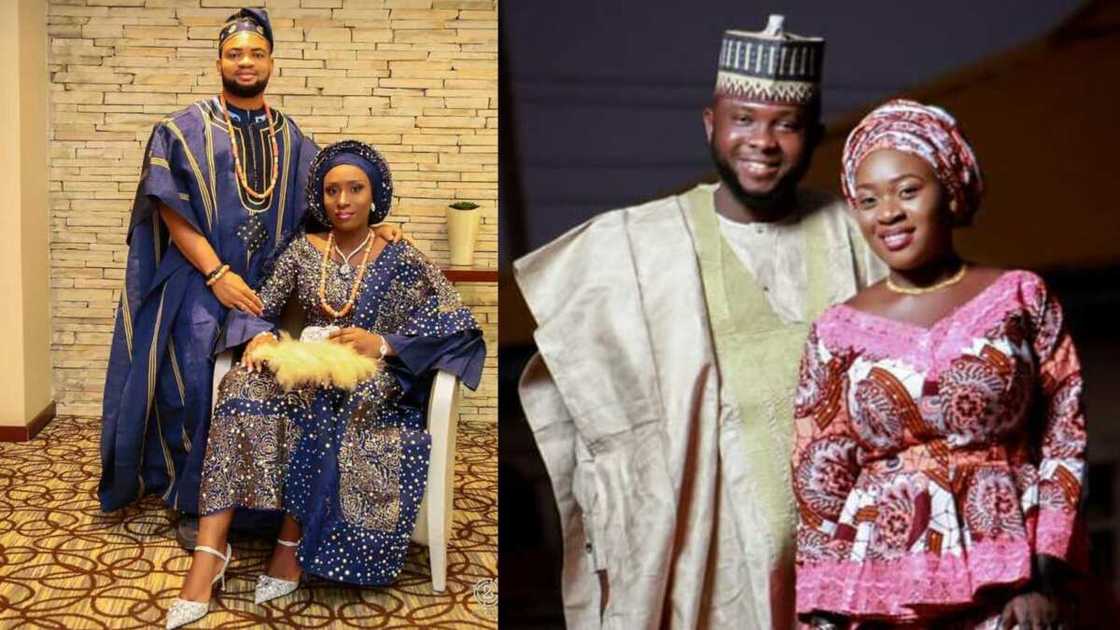
Source: UGC
Hausas call the Nupe tribe Nupawa, while Yorubas call them Tapa. They are the dominant ethnic group in Kogi, Kwara, and the Niger states. There are about 3.5 million Nupe speakers in Nigeria.
Nupe people often have tribal marks on their faces. Most of them are Muslims, and a few are Christians and traditionalists. The proximity of the Nupe tribe to the Yoruba-Oyo in the southwest and the Yoruba-Igbomina in the south led to intermarriages, trading, exchange of cultures and conflicts over the centuries.
10. Jukun (Njikum)
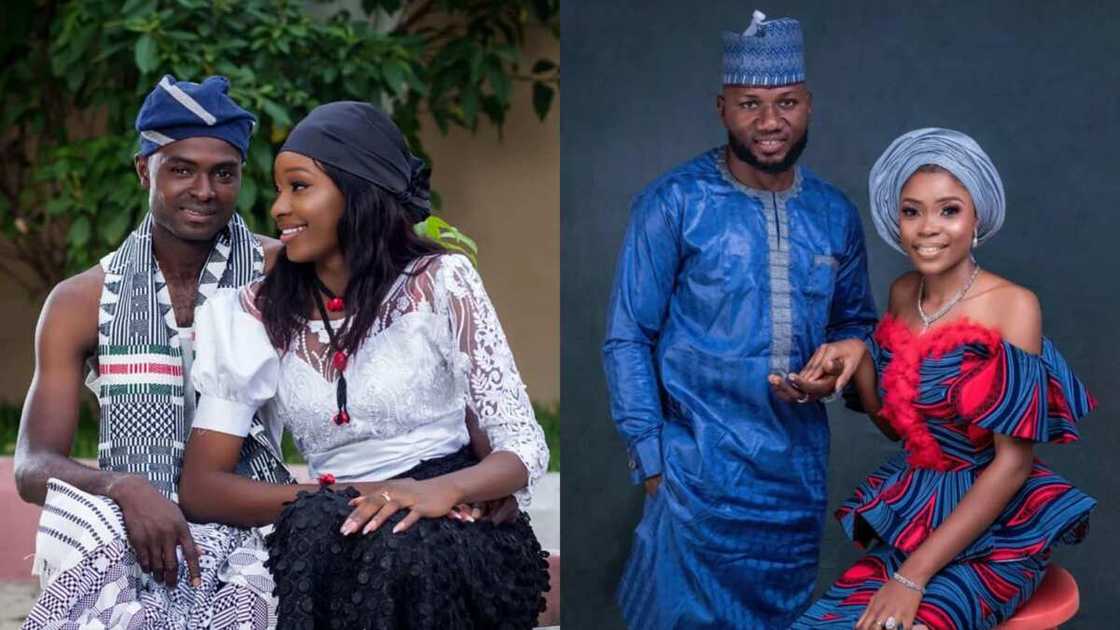
Source: UGC
Jukun people of Nigeria are in Bauchi, Benue, Plateau, and Taraba states. They are also found in various parts of northwestern Cameroon. Most of them were traditionalists until Christianity and Islam came to Africa.
The Jukun tribe is divided into two major groups; the Jukun Wapa and Jukun Wanu. Their language is divided into six dialects: Wukari, Donga, Kona, Gwana, Pindiga, Jibu, and Wase Tofa. The Kona, Gwana, and Pindiga dialects differ but are regarded as one because they are small.
Tribes in Nigeria and their states
Below is a map of major tribes in Nigeria spread among the country's states:
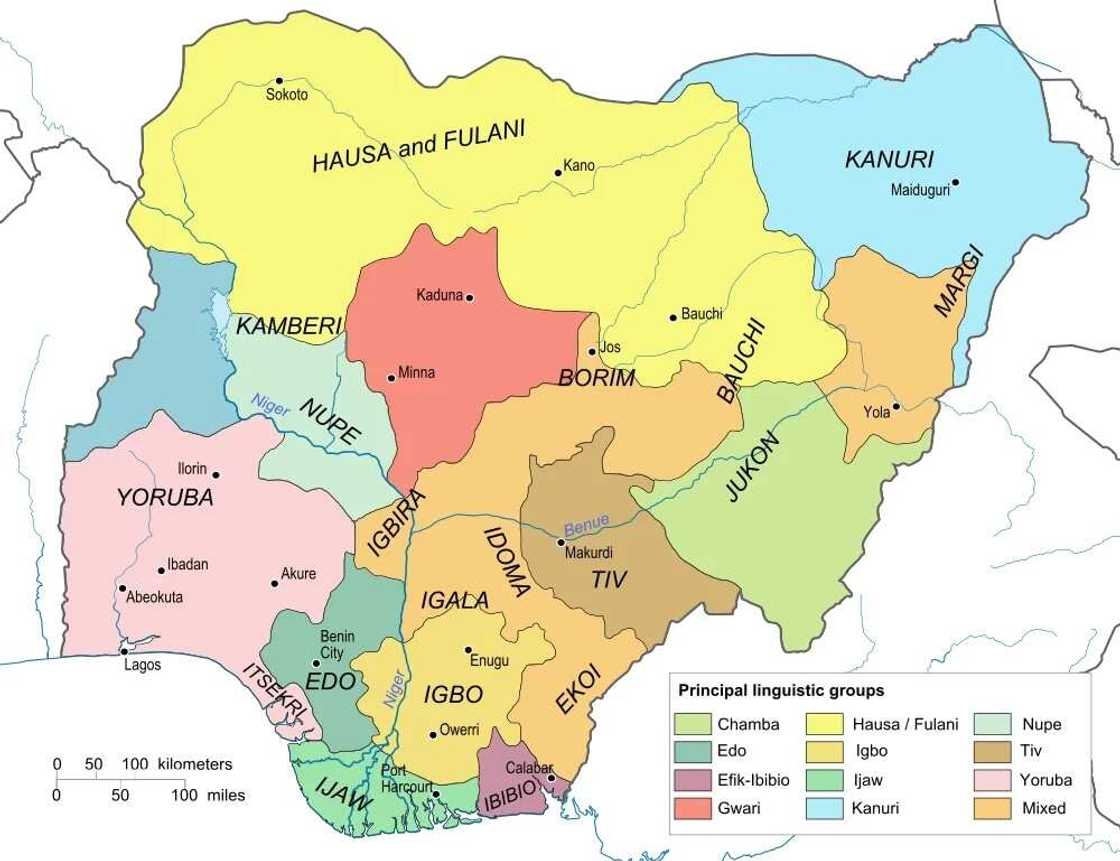
How many tribes are there in Nigeria?
Nigeria has 371 ethnic groups, speaking over 500 languages in Nigeria. English is their official language because the country was a British colony.
What tribes are in Nigeria?
Below are tables of all ethnic groups in Nigeria and the states they live in:
| Names of ethnic groups - State (s) | Names of ethnic groups - State (s) |
| 1. Abayon - Cross River2. Abua (Odual) -Rivers3. Achipa (Achipawa) - Kebbi4. Adim - Cross River5. Adun - Cross River6. Affade - Yobe7. Afizere - Plateau8. Afo - Plateau9. Agbo - Cross River10. Akaju Ndem (Akajuk) - Cross River11. Akweya Yachi - Benue12. Alago (Arago) - Piateau13. Amo - Plateau14. Anaguta - Plateau15. Anang - Akwa lbom16. Andoni - Akwa lbom, Rivers17. Angas - Bauchi, Jigawa, Plateau18. Ankwei - Plateau19. Anyima - Cross River20. Attakar (ataka) - Kaduna21. Auyoka (Auyokawa) - Jigawa22. Awori - Lagos, Ogun23. Ayu - Kaduna24. Babur - Adamawa, Bomo, Taraba, Yobe25. Bachama - Adamawa26. Bachere - Cross River27. Bada - Plateau28. Bade - Yobe29. Bahumono - Cross River30. Bakulung - Taraba31. Bali - Taraba32. Bambora (Bambarawa) - Bauchi33. Bambuko - Taraba34. Banda (Bandawa) - Taraba35. Banka (Bankalawa) - Bauchi36. Banso (Panso) - Adamawa37. Bara (Barawa) - Bauchi38. Barke - Bauchi39. Baruba (Barba) - Niger40. Bashiri (Bashirawa) - Plateau41. Bassa - Kaduna, Kogi, Niger, Plateau42. Batta - Adamawa43. Baushi - Niger44. Baya - Adamawa45. Bekwarra - Cross River46. Bele (Buli, Belewa) - Bauchi47. Betso (Bete) - Taraba48. Bette - Cross River49. Bilei - Adamawa50. Bille - Adamawa51. Bina (Binawa) - Kaduna52. Bini - Edo53. Birom - Plateau54. Bobua - Taraba55. Boki (Nki) - Cross River56. Bkkos - Plateau57. Boko (Bussawa, Bargawa) - Niger58. Bole (Bolewa) - Bauchi, Yobe59. Botlere - Adamawa60. Boma (Bomawa, Burmano) - Bauchi61. Bomboro - Bauchi62. Buduma - Borno, Niger63. Buji - Plateau64. Buli - Bauchi65. Bunu -Kogi66. Bura - Adamawa67. Burak - Bauchi68. Burma (Burmawa) - Plateau69. Buru - Yobe70. Buta (Butawa) - Bauchi71. Bwall - Plateau72. Bwatiye - Adamawa73. Bwazza - Adamawa74. Challa - Plateau75. Chama (Chamawa Fitilai) - Bauchi76. Chamba - Taraba77. Chamo - Bauchi78. Chibok (Chibbak) - Yobe79. Chinine - Borno80. Chip - Plateau81. Chokobo - Plateau82. Chukkol - Taraba83. Daba - Adamawa84. Dadiya - Bauchi85. Daka - Adamawa86. Dakarkari - Niger, Kebbi87. Danda (Dandawa) - Kebbi88. Dangsa - Taraba89. Daza (Dere, Derewa) - Bauchi90. Degema - Rivers91. Deno (Denawa) - Bauchi92. Dghwede - Bomo93. Diba - Taraba | 94. Doemak (Dumuk) - Plateau95. Ouguri - Bauchi96. Duka (Dukawa) - Kebbi97. Duma (Dumawa) - Bauchi98. Ebana (Ebani) - Rivers99. Ebirra (lgbirra) - Edo, Kogi, Ondo100. Ebu - Edo, Kogi101. Efik - Cross River102. Egbema - Rivers103. Egede (lgedde) - Benue104. Eggon - Plateau105. Egun (Gu) - Lagos,Ogun106. Ejagham - Cross River107. Ekajuk - Cross River108. Eket - Akwa Ibom109. Ekoi - Cross River110. Engenni (Ngene) -Rivers111. Epie -Rivers112. Esan (Ishan) - Edo113. Etche - Rivers114. Etolu (Etilo) - Benue115. Etsako - Edo116. Etung - Cross River117. Etuno - Edo118. Palli - Adamawa119. Pulani (Pulbe) - Bauchi, Borno, Jigawa, Kaduna, Kano, Katsina, Kebbi , Niger, Sokoto, Taraba, Yobe120. Fyam (Fyem) - Plateau121. Fyer (Fer) - Plateau122. Ga’anda - Adamawa123. Gade - Niger124. Galambi - Bauchi125. Gamergu Mulgwa -Borno126. Qanawuri - Plateau127. Gavako - Borno128. Gbedde - Kogi129. Gengle - Taraba130. Geji - Bauchi131. Gera (Gere, Gerawa) -Bauchi132. Geruma (Gerumawa) -Plateau133. Geruma (Gerumawa) -Bauchi134. Gingwak -Bauchi135. Gira -Adamawa136. Gizigz -Adamawa137. Goernai -Plateau138. Gokana (Kana) -Rivers139. Gombi -Adamawa140. Gornun (Gmun) -Taraba141. Gonia -Taraba142. Gubi (Gubawa) -Bauchi143. Gude - Adamawa144. Gudu - Adamawa145. Gure - Kaduna146. Gurmana - Niger147. Gururntum - Bauchi148. Gusu - Plateau149. Gwa (Gurawa) - Adamawa150. Gwamba - Adamawa151. Gwandara - Kaduna, Niger, Plateau152. Gwari (Gbari) -Kaduna, Niger, Abuja, Plateau153. Gwom - Taraba154. Gwoza (Waha) -Borno155. Gyem -Bauchi156. Hausa - Bauchi, Borno, Jigawa, Kaduna, Kano, Kastina, Kebbi, Niger, Taraba, Sokoto, Zamfara157. Higi (Hig) - Borno, Adamawa158. Holma - Adamawa159. Hona - Adamawa160. Ibeno - Akwa lbom161. Ibibio - Akwa lbom162. Ichen - Adamawa163. Idoma - Benue, Taraba164. Igalla - Kogi165. lgbo -Abia, Anambra, Benue, Delta, Ebonyi, Enugu, Imo, Rivers166. ljumu - Kogi167. Ikorn - Cross River168. Irigwe - Plateau169. Isoko - Delta170. lsekiri (Itsekiri) - Delta171. lyala (lyalla) - Cross River172. lzondjo -Bayelsa, Delta, Ondo, Rivers173. Jaba -Kaduna174. Jahuna (Jahunawa) -Taraba175. Jaku -Bauchi176. Jara (Jaar Jarawa Jarawa-Dutse) - Bauchi177. Jere (Jare, Jera, Jera, Jerawa) - Bauchi, Plateau178. Jero - Taraba179. Jibu - Adamawa180. Jidda Abu - Plateau181. Jimbin (Jimbinawa) - Bauchi182. Jirai - Adamawa |
| Names of ethnic groups - State (s) | Names of ethnic groups - State (s) |
| 183. Jonjo (Jenjo) - Taraba184. Jukun - Bauchi, Benue,Taraba, Plateau185. Kaba (Kabawa) - Taraba186. Kadara - Taraba187. Kafanchan - Kaduna188. Kagoro - Kaduna189. Kaje (Kache) -Kaduna190. Kajuru (Kajurawa) - Kaduna191. Kaka - Adamawa192. Kamaku (Karnukawa) - Kaduna, Kebbi, Niger193. Kambari - Kebbi, Niger194. Kambu - Adamawa195. Kamo - Bauchi196. Kanakuru (Dera) - Adamawa, Borno197. Kanembu - Borno198. Kanikon -Kaduna199. Kantana -Plateau200. Kanuri - Kaduna, Adamawa, Borno, Kano, Niger, Jigawa, Plateau, Taraba, Yobe201. Karekare (Karaikarai) - Bauchi, Yobe202. Karimjo - Taraba203. Kariya - Bauchi204. Katab (Kataf) - Kaduna205. Kenern (Koenoem) - Plateau206. Kenton - Taraba207. Kiballo (Kiwollo) - Kaduna208. Kilba - Adamawa209. Kirfi (Kirfawa) - Bauchi210. Koma - Taraba211. Kona - Taraba212. Koro (Kwaro) - Kaduna, Niger213. Kubi (Kubawa) - Bauchi214. Kudachano (Kudawa) - Bauchi215. Kugama - Taraba216. Kulere (Kaler) - Plateau217. Kunini - Taraba218. Kurama - Jigawa, Kaduna, Niger, Plateau219. Kurdul - Adamawa220. Kushi - Bauchi221. Kuteb - Taraba222. Kutin - Taraba223. Kwalla - Plateau224. Kwami (Kwom) - Bauchi225. Kwanchi - Taraba226. Kwanka (Kwankwa) - Bauchi, Plateau227. Kwaro - Plateau228. Kwato - Plateau229. Kyenga (Kengawa) - Sokoto230. Laaru (Larawa) - Niger231. Lakka - Adamawa232. Lala - Adamawa233. Lama - Taraba234. Lamja - Taraba235. Lau - Taraba236. Ubbo - Adamawa237. Limono - Bauchi, Plateau238. Lopa (Lupa, Lopawa) - Niger239. Longuda (Lunguda) - Adamawa, Bauchi240. Mabo - Plateau241. Mada - Kaduna, Plateau242. Mama - Plateau243. Mambilla - Adamawa244. Manchok - Kaduna245. Mandara (Wandala) - Borno246. Manga (Mangawa) - Yobe247. Margi (Marghi) - Adamawa, Borno248. Matakarn - Adamawa249. Mbembe - Cross River, Enugu250. Mbol - Adamawa251. Mbube - Cross River252. Mbula - Adamawa253. Mbum - Taraba254. Memyang (Meryan) - Plateau255. Miango - Plateau256. Miligili (Migili) - Plateau257. Miya (Miyawa) - Bauchi258. Mobber - Borno259. Montol - Plateau260. Moruwa (Moro’a, Morwa) - Kaduna261. Muchaila - Adamawa262. Mumuye - Taraba263. Mundang - Adamawa264. Munga (Mupang) - Plateau265. Mushere - Plateau266. Mwahavul (Mwaghavul) - Plateau267. Ndoro - Taraba268. Ngamo - Bauchi, Yobe269. Ngizim - Yobe270. Ngweshe (Ndhang.Ngoshe-Ndhang) - Adamawa, Borno271. Ningi (Ningawa) -Bauchi272. Ninzam (Ninzo) -Kaduna, Plateau273. Njayi -Adamawa274. Nkim -Cross River275. Nkum -Cross River | 276. Nokere (Nakere) -Plateau277. Nunku -Kaduna, Plateau278. Nupe -Niger279. Nyandang -Taraba280. Ododop Cross River281. Ogori -Kwara282. Okobo (Okkobor) -Akwa lbom283. Okpamheri -Edo284. Olulumo -Cross River285. Oron -Akwa lbom286. Owan -Edo287. Owe -Kwara288. Oworo -Kwara289. Pa’a (Pa’awa Afawa) -Bauchi290. Pai -Plateau291. Panyam -Taraba292. Pero -Bauchi293. Pire -Adamawa294. Pkanzom -Taraba295. Poll -Taraba296. Polchi Habe -Bauchi297. Pongo (Pongu) -Niger298. Potopo -Taraba299. Pyapun (Piapung) -Plateau300. Qua -Cross River301. Rebina (Rebinawa) -Bauchi302. Reshe -Kebbi, Niger303. Rindire (Rendre) -Plateau304. Rishuwa -Kaduna305. Ron -Plateau306. Rubu -Niger307. Rukuba -Plateau308. Rumada -Kaduna309. Rumaya -Kaduna310. Sakbe -Taraba311. Sanga -Bauchi312. Sate -Taraba313. Saya (Sayawa Za’ar) -Bauchi314. Segidi (Sigidawa) -Bauchi315. Shanga (Shangawa) -Sokoto316. Shangawa (Shangau) -Plateau317. Shan-Shan -Plateau318. Shira (Shirawa) -Kano319. Shomo -Taraba320. Shuwa -Adamawa, Borno321. Sikdi -Plateau322. Siri (Sirawa) -Bauchi323. Srubu (Surubu) -Kaduna324. Sukur -Adamawa325. Sura -Plateau326. Tangale -Bauchi327. Tarok -Plateau, Taraba328. Teme -Adamawa329. Tera (Terawa) -Bauchi, Bomo330. Teshena (Teshenawa) -Kano331. Tigon -Adamawa332. Tikar -Taraba333. Tiv -Benue, Plateau, Taraba and Nasarawa334. Tula -Bauchi335. Tur -Adamawa336. Ufia -Benue337. Ukelle -Cross River338. Ukwani (Kwale) -Delta339. Uncinda -Kaduna, Kebbi, Niger, Sokoto340. Uneme (Ineme) -Edo341. Ura (Ula) -Niger342. Urhobo -Delta343. Utonkong -Benue344. Uyanga -Cross River345. Vemgo -Adamawa346. Verre -Adamawa347. Vommi -Taraba348. Wagga -Adamawa349. Waja -Bauchi350. Waka -Taraba351. Warja (Warja) -Jigawa352. Warji -Bauchi353. Wula -Adamawa354. Wurbo -Adamawa355. Wurkun -Taraba356. Yache -Cross River357. Yagba -Kwara358. Yakurr (Yako) -Cross River359. Yalla -Benue360. Yandang -Taraba361. Yergan (Yergum) -Plateau362. Yoruba - Kwara, Lagos, Ogun, Ondo, Oyo, Osun, Ekiti, Kogi)363. Yott -Taraba364. Yumu -Niger365. Yungur -Adamawa366. Yuom -Plateau367. Zabara -Niger368. Zaranda -Bauchi369. Zarma (Zarmawa) -Kebbi370. Zayam (Zeam) -Bauchi371. Zul (Zulawa) –Bauchi |
What are the three major tribes in Nigeria?
Yoruba, Hausa and Igbo and the three largest tribes in Nigeria. These tribes make up nearly 70% of the country's population.
What are the largest tribes in Nigeria?
Major tribes in Nigeria and their percentage in the country's population are:
- Hausa-Fulani - 29%
- Yoruba - 21%
- Igbo (Ibo) - 18%
- Ijaw - 10%
- Kanuri - 4%
- Ibibio - 3.5%
- Tiv - 2.5%
What are the top 10 oldest tribes in Nigeria?
The ten ancient tribes existed before the amalgamation of Nigeria in 1914. Moreover, each has their own culture, religious practices, and form of government. These tribes are:
- Ijaw
- Ebira
- Ibibio-Efik
- Igbo (Ibo)
- Hausa-Fulani
- Kanuri
- Yoruba
- Igala
- Benin
- Gbagyi
Which tribe was the first to emerge in Nigeria?
The Ijaw is the oldest tribe in Nigeria because studies show the Ijo language existed 5,000 years before language groups neighboring them. These earliest inhabitants of Nigeria can be traced to 13,000 BC before modern Nigeria existed in the 1500s. The Ijaw ancestors were the ancient ORU or (H)ORU people. These nomadic people migrated from Lake Chad and the Sudanic Nile Valley to the southwestern delta of the Niger River.
Which tribe has the highest population in Nigeria?
Hausa is the largest tribe in Nigeria, making up approximately 29% of the country's population.
Which is the richest tribe in Africa?
Yoruba is the wealthiest ethnic group in the south of the Sahara Desert. They mainly inhabit part of Nigeria and can also be found in Benin and Togo. Yorubas are rich because they value education and have the highest number of professionals on the continent. Most are into politics, business, and entrepreneurship.
What is the largest single tribe in Africa?
Hausa is the largest single tribe in Africa, with about 78 million people. They are primarily in northwestern Nigeria and southern Niger but can also be found in Cameroon, Togo, Chad, Benin, Burkina Faso, and Ghana.
Knowing how many tribes are in Nigeria and their states help one understand the nation better. The major tribes in Nigeria have a massive say in the country's politics because they have the most population and voters. This does not mean that there is no democracy in the country. The federal government of Nigeria upholds equality for all.
Legit.ng also shared an insightful article about geopolitical zones in Nigeria and their states. Nigeria is divided into six regions called geopolitical zones.
General Sani Abacha's regime created these administrative regions to determine the distribution of economic, educational, and political resources among the people.
Source: Legit.ng

Peris Walubengo (Lifestyle writer) Peris Walubengo has vast experience in search engine optimization through digital content generation, research, editing, and proofreading. She joined Legit.ng in April 2022 and completed the AFP course on Digital Investigation Techniques. You can email her at perisrodah254@gmail.com.

Adrianna Simwa (Lifestyle writer) Adrianna Simwa is a content writer at Legit.ng where she has worked since mid-2022. She has written for many periodicals on a variety of subjects, including news, celebrities, and lifestyle, for more than three years. She has worked for The Hoth, The Standard Group and Triple P Media. Adrianna graduated from Nairobi University with a Bachelor of Fine Arts (BFA) in 2020. In 2023, Simwa finished the AFP course on Digital Investigation Techniques. You can reach her through her email: adriannasimwa@gmail.com

